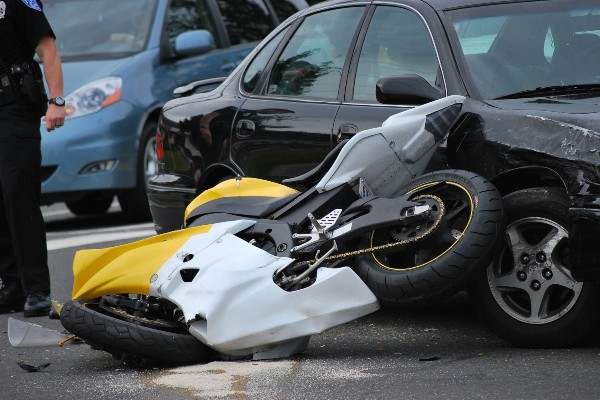
After a motorbike accident, the risk of severe brain trauma is likely. After all, on a motorcycle, a rider does not have the same protections as the passenger of a vehicle, which means that they are at higher risk for injury. Those who have suffered a brain injury could have long-term disabilities along with it, including the inability to function altogether and require around-the-clock care just to survive.
If you or a loved one has suffered a brain injury after a motor vehicle accident, you have the right to compensation. To unlock the compensation you deserve, you should speak with an accident attorney as soon as possible.
The Risk of Head Trauma Is Higher for Motorcyclists
According to the National Highway Traffic Safety Administration (NHTSA), a motorcyclist is four times more likely to suffer an injury, and one of those injuries includes head trauma. A traumatic head injury, known as a TBI, can lead to permanent disability or death, depending on its severity. Not only does this occur to those not wearing helmets, but traumatic head injuries can also occur in riders wearing them.
What Are the Long-Term Consequences of a Motorbike Accident?
TBIs are common any time a motorcycle rider is in an accident, because in an accident, they are likely to hit their head on the pavement or even be struck by debris from the accident. A TBI can include anything from a concussion to a more serious injury, such as a skull fracture.
There are different degrees of TBIs, and these range from mild to moderate to severe. A severe TBI usually requires long-term medical care and the victim rarely recovers back to their pre-accident state. Mild TBIs, on the other hand, can include concussions. However, the term should not be misleading. While it is coined “mild,” that does not mean that it will not affect the victim long-term or that they will not experience symptoms because of a mild TBI. In fact, some mild TBIs still require months of medical care.
Also, a victim does not have to lose consciousness to have a TBI. Therefore, it is important that anyone in a motor vehicle accident seek medical care right away. Most emergency room physicians will automatically scan for any potential brain injuries – even if the victim is not experiencing symptoms – because symptoms may take hours, days, or sometimes weeks to develop fully.
Common Impairments with any TBI
Whether mild or severe, there are some impairments a victim will suffer. With a mild TBI, these impairments are typically temporary, and they may resolve themselves a few weeks later. With severe TBIs, these impairments could be permanent.
Some impairments common with TBIs include:
- Disruption in Cognitive and Physical Abilities – The brain is like the computer of the body, and when that computer has shut down, so do numerous functions of the body. A person may be unable to speak, think critically, hear correctly, or even breathe on their own, depending on the severity of the TBI. In some cases, the brain no longer communicates with the body. It no longer lets a person know to move their hand or even be aware of their surroundings.
- Disrupted Vision – A common symptom of a TBI is blurred vision, but if the trauma is more severe, it can lead to blindness. Even if the eyes are not injured, when the brain cannot process what the eyes are reflecting, then a person could be legally blind.
- Changes in Behavior – Serious changes in behavior are common with a TBI and, depending on what area of the brain is injured and whether it is permanent or not, a person’s behavior and even their personality could be permanently altered. Even mild cases of a TBI can result in depression, anxiety, and even paranoia. Some people grow more violent after a serious TBI, while others have severe changes in their personality altogether.
- Increased Risk of Suicide – Brain trauma can lead to depression, and it can also make a person more prone to suicide. When their entire lives are disrupted from a brain injury, that depression could lead them to take their own life. In some cases, they may feel they are helping loved ones by committing suicide, releasing family members of the burden of caring for them full-time.
- Financial Burdens – A TBI can impact not just the victim, but their family, too, financially. The cost of caring for someone with permanent brain damage is unsurmountable, and if someone requires around-the-clock care, in-home care must be secured or a family member may have to quit their job to care for the victim. Furthermore, victims no longer can work or provide for themselves or their loved ones financially, which puts further strain on the family.
Victims Should Not Have to Deal with the Financial Burden of a TBI
Anyone in a motorbike accident who suffers a serious brain injury should speak with an attorney. When the motorbike accident was caused by a negligent driver, motorcycle riders can receive compensation for their injuries, lost wages, medical costs, and the physical and emotional suffering they endure.
The only way to ensure you get the compensation you deserve is to speak with an attorney that handles these types of cases. The team at Brett McCandlis Brown & Conner, PLLC, can assist you with your case. We understand the unique circumstances of brain injury cases, and we have helped dozens of families just like yours secure the financial compensation they need. You should not have to deal with the insurance company; instead, let our advocates handle negotiations, paperwork, and representing you in court.
Call us today to get started. We offer free, no-obligation case evaluations with victims of motor vehicle accidents.
